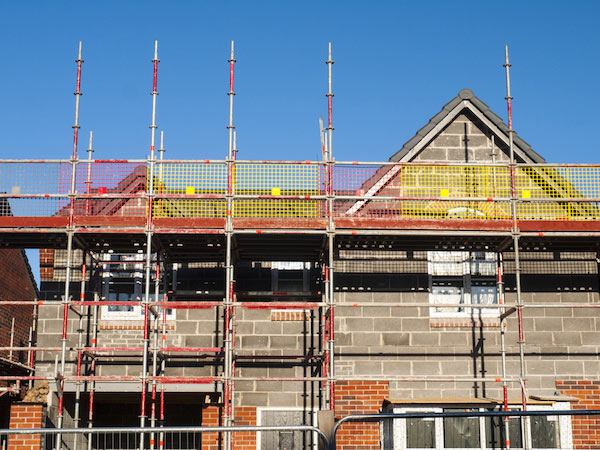
Due to us having a wealth of knowledge in the construction industry, we use a panel of 10 insurers which we have selected, who are all approved by everymajor lender (stated in the Council of Mortgage Lenders Handbook) and provide building warranty insurance.
Why go to 10 insurers not just 1?
Well apart from price, each insurer prefers different risks, some may like barn conversions, others new build residential homes and some sky scrapers/high rises.
Even the most experienced developer may not know which warranty provider is best for their risk, and this is wherewe come into our own. We work with each insurer daily and so know exactly which risk, fits which insurers appetite.
Why can’t I just do this myself?
There is nothing stopping you from filling out 10 different proposal forms and paying 10 different registration fees. At Construction Insure we want you to concentrate on what you are good at (construction) and leave us with sorting out the perfect building warranty for you. Hopefully this save you time money and give you peace of mind.
Additional areas to consider for your building warrant insurance
A crucial point to consider is whether you are just interested in price or in other factors, such as the way checks are carried out.
Each building warranty involves an audit fee, this is for checks to be made by site auditors and engineers whovisit the site on a regular basis (some insurers can inspect up to 8 times) to make sure there are no defects with construction. This means that there will not only be less chance of a claim, but if a claim is to occur, there is more certainty that you will be paid.
So then do you want more checks which can interrupt the construction process, but ultimately will lead to less claims, or less checks which can be easier for the construction process but may lead to something being missed and therefore more likely for a claim to occur.
In a nutshell the more checks that are required, the higher the cost of the building warranty due to fees, but also more certainty that the build will be completed with minimal issue further down the line.
In addition to checks at Construction Insure we also know exactly which providers have a set manual on how properties must be built and which are more lenient and fluid. Insurers with a set manual can have cheaper premiums but can often prevent and prolong construction if they dislike the way a property is being built. On the other hand insurers which are more lenient will work with your architects and structural engineers, and agree to any build if it is in line with British Standards.
CML recognised insurers
Dealing with all CML recognised insurers ,we also know which have their own in-house surveyors, engineers and auditors and which subcontract the work out. By subcontracting the work out insurers can often get cheaper premiums, one because the audit fees are less, but also because the company undertaking building control will often be the company doing the audit checks. However, this does not give separate independent advice and means there is more chance of human error which in turn will more likely lead to a claim. Additionally, insurers with their own auditors are more likely to be more stringent, as it will ultimately be their company paying out for any claim should there be a defect, therefore will be perform better checks which will give you, the developer, more peace of mind.
But wont this cost me more as you’re a broker?
We can’t lie our services are not free; however, our commission is already included in the quote given by the insurers. This price would be no different if you went to them direct. In fact, our price would most likely be cheaper. The reason for this is we deal with these insurers daily, placing large amounts of business with them and therefore we can negotiate the best deal for you.
PCC Vs building warranty
An architects certificate or a professional consultants certificate in its simplest, is a statement from the architect, that the property has been built in accordance with standard and accepted building principles, it last 6 years. A building warranty or a latent defect is an insurance policy covering the property for 10-12 years should an issue/fault arise in the property that was not discovered via inspection prior to completion or sale.
Despite the fact that some major banks will never lend on PCC’s there are also further invaluable reason why you should consider a Warranty.
To be paid on a claim through PCC you must prove there was negligence performed by the professional in question, whilst to be paid out on a warranty claim you simply need to prove there is damage (latent defect). Secondly, with a PCC there is no protection if the builder/developer was to go bankrupt once the property was sold, whilst with a building warranty there would be a risk transfer. Lastly,if you go to sell the property after 6 years or re-finance then you most likely will have to provide your warranty. At this point the PCC will not be acceptable and they will require a Warranty. At this point few providers will give a warranty and those that do will ask for an extortionate amount.
For more information or to talk to one of the team about your building warranty insurance contact us today!

